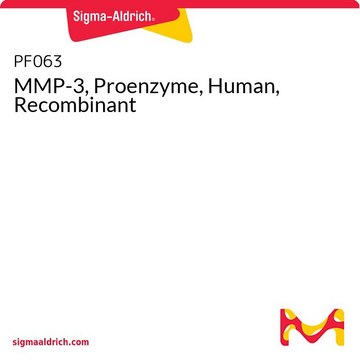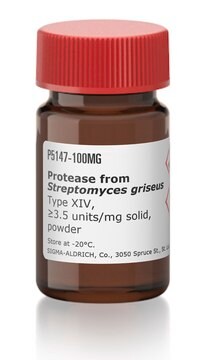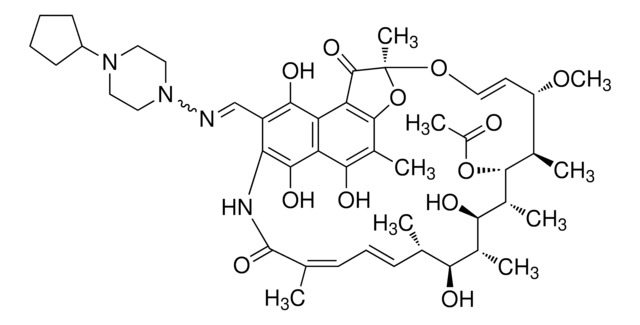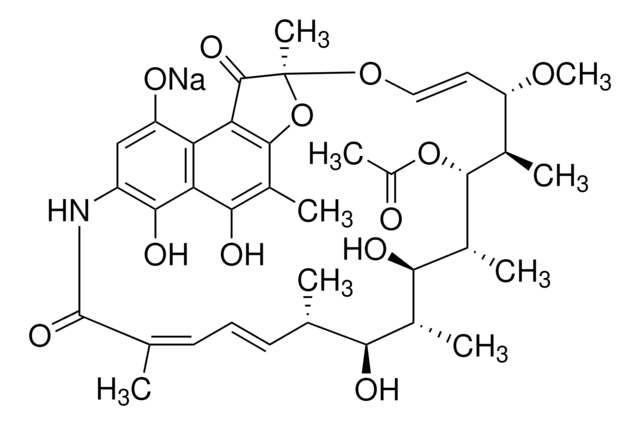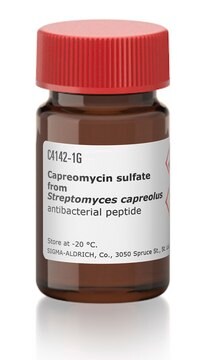R3501
Rifampicin
≥95% (HPLC), powder or crystals
Synonym(s):
3-(4-Methylpiperazinyliminomethyl)rifamycin SV, Rifampin, Rifamycin AMP
About This Item
Recommended Products
Quality Level
Assay
≥95% (HPLC)
form
powder or crystals
color
Reddish-brown
pKa
1.7 (4-hydroxyl group)
7.9 (4-piperazine nitrogen)
pI
4.84
antibiotic activity spectrum
Gram-negative bacteria
Gram-positive bacteria
mycobacteria
viruses
Mode of action
protein synthesis | interferes
storage temp.
−20°C
SMILES string
CO[C@H]1\C=C\O[C@@]2(C)Oc3c(C)c(O)c4c(O)c(NC(=O)C(C)=C\C=C\[C@H](C)[C@H](O)[C@@H](C)[C@@H](O)[C@@H](C)[C@H](OC(C)=O)[C@@H]1C)c(\C=N\N5CCN(C)CC5)c(O)c4c3C2=O
InChI
1S/C43H58N4O12/c1-21-12-11-13-22(2)42(55)45-33-28(20-44-47-17-15-46(9)16-18-47)37(52)30-31(38(33)53)36(51)26(6)40-32(30)41(54)43(8,59-40)57-19-14-29(56-10)23(3)39(58-27(7)48)25(5)35(50)24(4)34(21)49/h11-14,19-21,23-25,29,34-35,39,49-53H,15-18H2,1-10H3,(H,45,55)/b12-11+,19-14+,22-13-,44-20+/t21-,23+,24+,25+,29-,34-,35+,39+,43-/m0/s1
InChI key
JQXXHWHPUNPDRT-WLSIYKJHSA-N
Looking for similar products? Visit Product Comparison Guide
General description
Application
Biochem/physiol Actions
Other Notes
Signal Word
Warning
Hazard Statements
Precautionary Statements
Hazard Classifications
Acute Tox. 4 Oral
Storage Class Code
11 - Combustible Solids
WGK
WGK 1
Flash Point(F)
Not applicable
Flash Point(C)
Not applicable
Personal Protective Equipment
Certificates of Analysis (COA)
Search for Certificates of Analysis (COA) by entering the products Lot/Batch Number. Lot and Batch Numbers can be found on a product’s label following the words ‘Lot’ or ‘Batch’.
Already Own This Product?
Find documentation for the products that you have recently purchased in the Document Library.
Customers Also Viewed
Our team of scientists has experience in all areas of research including Life Science, Material Science, Chemical Synthesis, Chromatography, Analytical and many others.
Contact Technical Service



